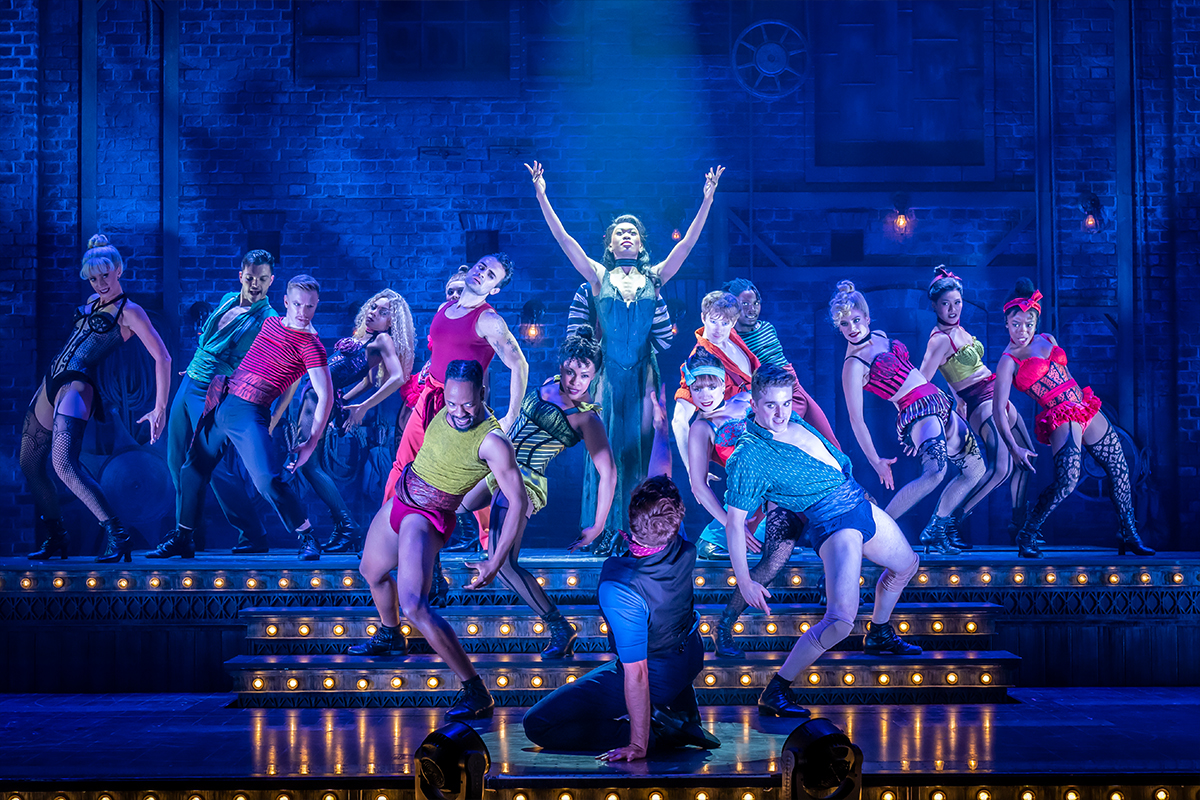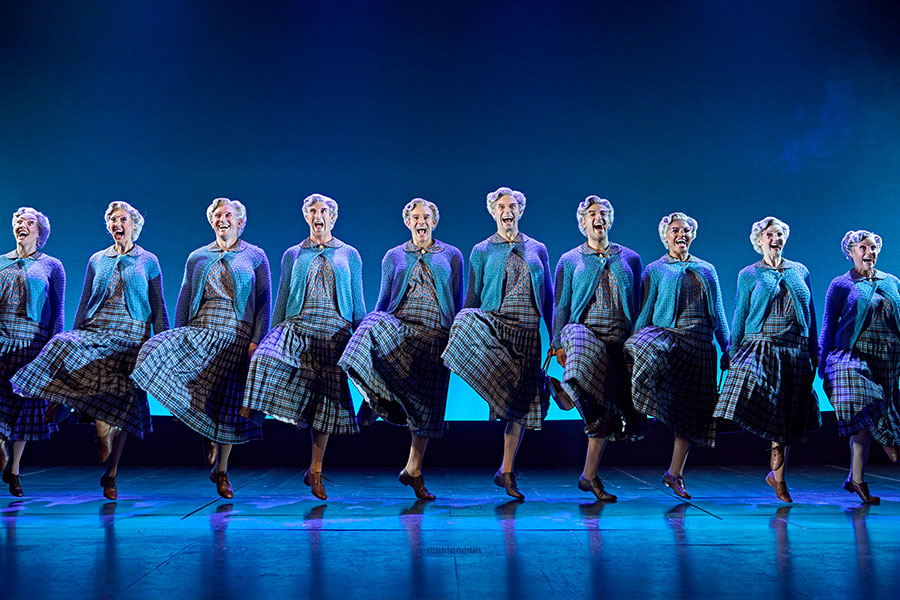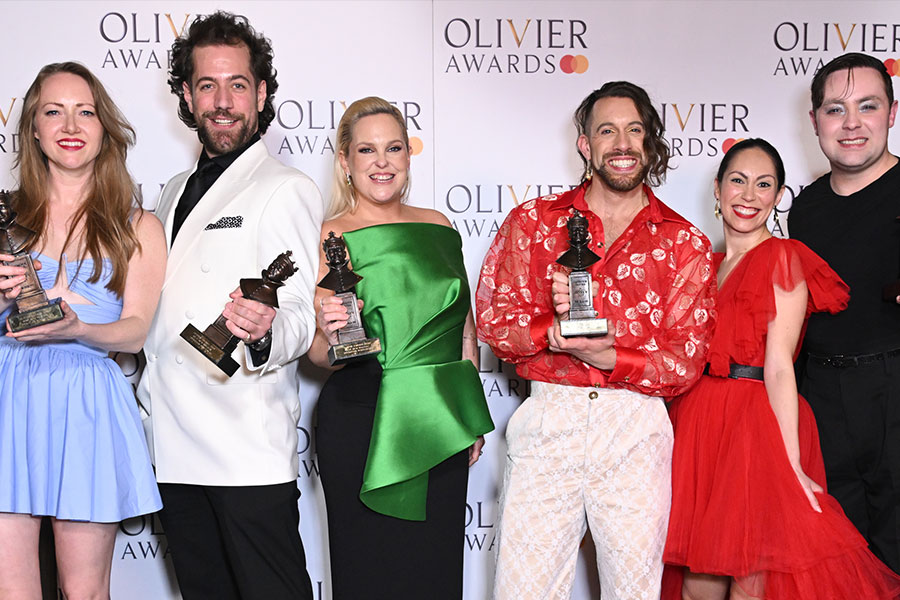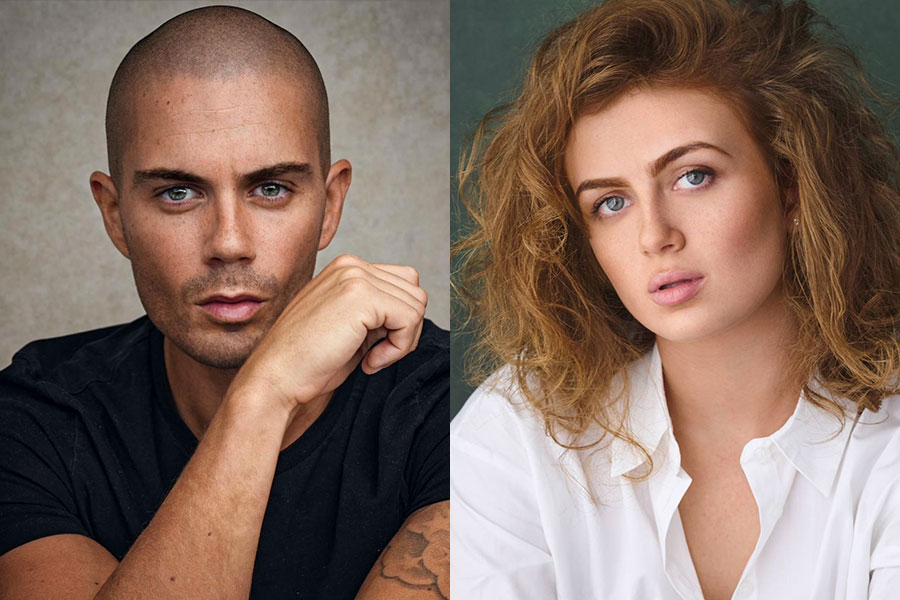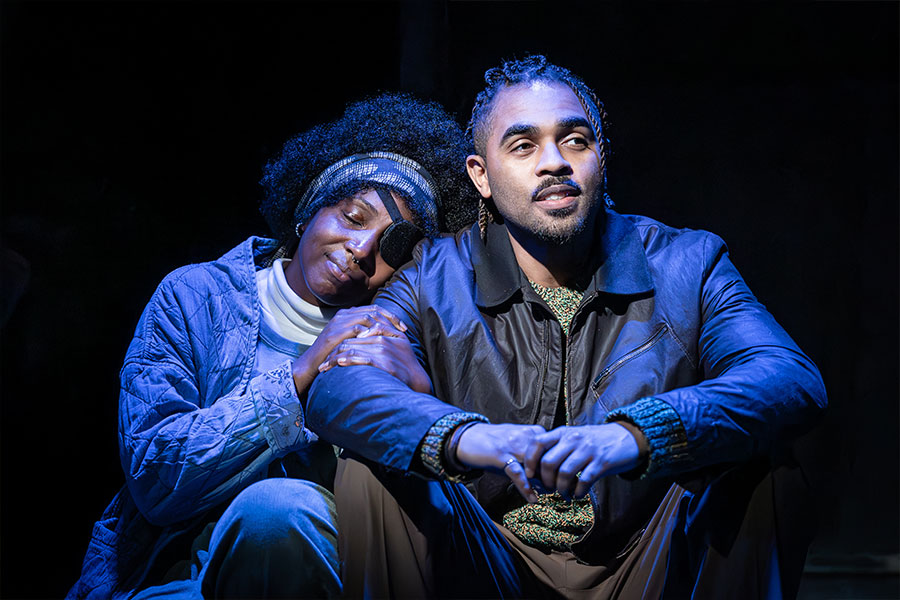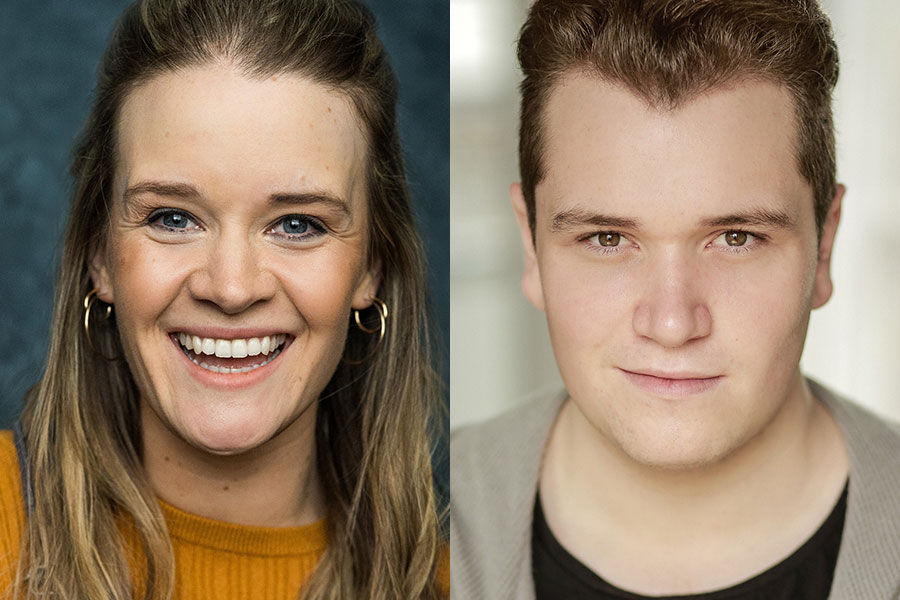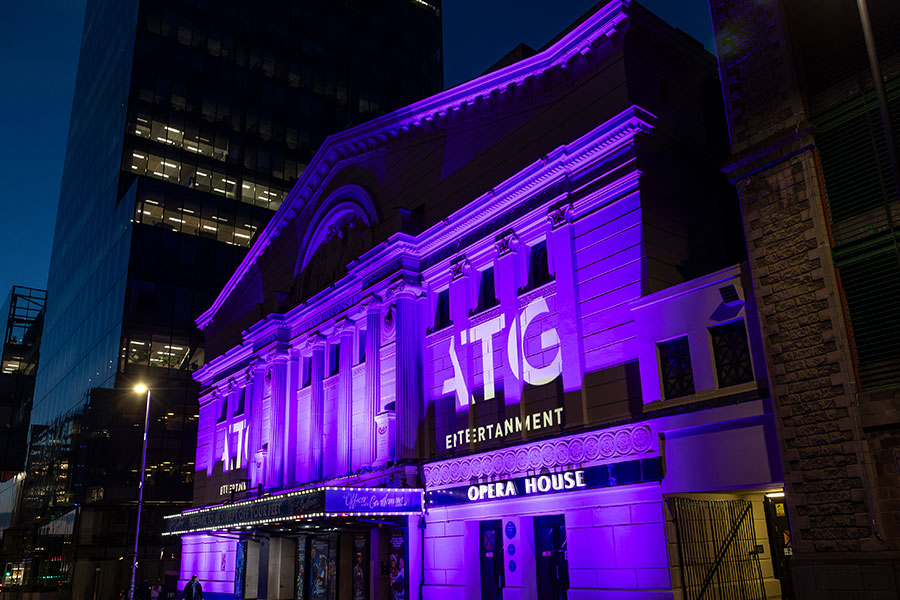David Lan & Annie Cast Thank Audience at Q&A
Theatregoers at our sell-out Whatsonstage.com Outing to last night’s performance of Annie Get Your Gun at the Young Vic received thanks from the cast for being such an enthusiastic and receptive audience at our post-show Q&A, which was attended by the majority of the company, including co-stars Jane Horrocks and Julian Ovenden, as well as Young Vic artistic director David Lan.
The Broadway musical classic is given a radical reworking in Richard Jones’ new production. The story centres on the on-off romance between Annie Oakley (Jane Horrocks) and Frank (Julian Ovenden). Frank is the sharpest sharpshooter in the West and heartthrob of Buffalo Bill’s travelling Wild West show. He’ll take on any challenge … and win! That is, until he meets his match in the rough-and ready-tomboy Annie. Romantic sparks fly – but while he’s competitive and she’s stubborn, the course of true love never will run smooth.
Irving Berlin wrote the lyrics and music – with now-classic songs including “There’s No Business Like Show Business”, “Doing What Comes Naturally” and “Anything You Can Do (I Can Do Better)” – for the musical, which has a book by Herbert and Dorothy Fields. It premiered on Broadway in 1946, famously starring Ethel Merman as Annie. In 1950 it was made into a film starring Betty Hutton and Howard Keel. The stage musical last ran in the West End at the Prince of Wales Theatre in 1992.
At last night’s Q&A, Jane Horrocks, Julian Ovenden and David Lan were joined by cast members Florence Andrew, Buffy Davis, Paul Iveson, Eric MacLennan, John Marquez, Liza Sadovy, Michael Talibi, Chucky Venn and Adam Venus. The discussion took place in the theatre immediately after the performance and was chaired by Whatsonstage.com editorial director Terri Paddock. Edited highlights follow …
On a Broadway musical being an unusual choice for the Young Vic
David Lan: I think the only thing that characterises the work we do here is that everything we do is a little bit unusual. The one guiding policy is that we never want to do the same thing twice. So if we’ve done one type of show we think, what is the next challenge, what’s the thing we can do that we’ve never done before, that we don’t know how to do but by doing we’ll learn something and we’ll grow.
It is unusual for us to do a classic Broadway musical. We’ve done other musicals. The closest we’ve come before is Street Scene. It’s not exactly a Broadway musical, it’s sort of a hybrid opera musical. It was preformed originally on Broadway, but it’s not a Broadway classic like this one.
On choosing to programme Annie Get Your Gun in particular
David Lan: It’s a great show. I knew it a little bit and I knew the score like most people do. Richard Jones, who directed the show, about 18 months ago did a production for us of The Good Soul of Szechuan by Bertolt Brecht in which Jane Horrocks played the good soul. The two of them had a very good time working together, and we loved having them here working with us. The idea of doing Annie Get Your Gun came directly out of the fact that Jane and Richard and us had had such a good time, we thought, what else can we do. What can we do that is completely different and we came up with the idea of Annie Get Your Gun. We thought Jane would make a fantastic Annie Oakley, which I think she is, and Richard would do a production of the show unlike a production anyone else would do.
On switching from Berlin to Brecht
Jane Horrocks: In Michael Billington’s review he refers to it (this production of Annie Get Your Gun) as being Brechtian and it’s true. It’s simplistically done in that way that Brecht productions are done. It exposes the truth, it’s a very truthful production of the play.
On working with Richard Jones
Eric MacLennan: He’s an absolutely wonderful director. Although this may seem like quite light material, he works on it in incredible depth, working on tiny tiny details. He’s such a polite man. He will say to us “we’re going to do this again and again so take out your bore insurance”. He wants to know that we’re having a good time. He manages to watch the production like the audience, he’ll pull us up on things and he says “that’s fine but I’m receiving this as a first-time buyer”. Which is to say that the audience only sees his once so he makes directions in what we’re doing that have the sort of clarity that you only see in paintings. He actually paints. It’s great to have worked with him.
On how this production is different from a big West End musical
John Marquez: Rehearsing it, it didn’t seem like it was anything different. And then, of course, when we got on stage, we found it was a very different sensation to having a whole orchestra belting you up and supporting you. It took a while to get used to that. Also, with the way it’s staged, it took it to a place where it almost became – I know it isn’t – but it almost became a play with music rather than being a normal showbiz musical.
On the low-tech props & set design
Julian Ovenden: It’s quite nice to do something that’s unflashy, and I mean that in the nicest possible way. We’re surrounded by productions, especially musicals, where they are throwing millions of pounds at the set, with hydraulics and lifts and effects and cars coming in and space ships and all the rest of it. And it’s nice to do a show where we are focusing on the story and we’re letting the audience do more of the work – to suggest rather than just spoon-feed. For me, that’s what theatre’s about. I really feel a great interaction with the audience, every night is different. It’s nice to have that kind of dynamic in the theatre. Often you feel that audiences are sitting back and saying “entertain us” and this show demands from an audience a little bit more.
David Lan: It requires a little more from the audience indeed, but it also requires more from the actors. All we have is the actors here. There isn’t a million pounds’ worth of technology and that seems to me exactly right for this show: a very warm, heartfelt show about people.
On Irving Berlin’s music
Jane Horrocks: I think the lyrics are very exposed in this production which is great. People hear the lyrics because you don’t have all the paraphernalia that goes along with a very wealthy production. Also people are amazed and think “oh yes, that song is in this musical”, and that can be a lovely surprise for the audience. A lot of audience members don’t realise that there are so many fantastic songs packed into one piece.
Julian Ovenden: For a man who was born in Russia (as Irving Berlin was), it’s amazing how much his music shows how much he loves America. It’s just indescribably American. There’s so much variety in it. It’s an extraordinary marriage of lyric and song. And his piano could only play in one key! His piano had a little thing on the side which shifted key, so if he wanted to play in a different key, he just pushed it and he’d be fine. It’s a pleasure and a privilege to sing these songs, they’re absolutely genius.
On Annie Oakley & Frank Butler in real life
Jane Horrocks: In real life Frank gives up his career and manages Annie Oakley.
Julian Ovenden: Afterwards it’s a tale of complete devotion: he supports her, they live happily ever after and when she dies 40 years later, he dies a few days after that.



